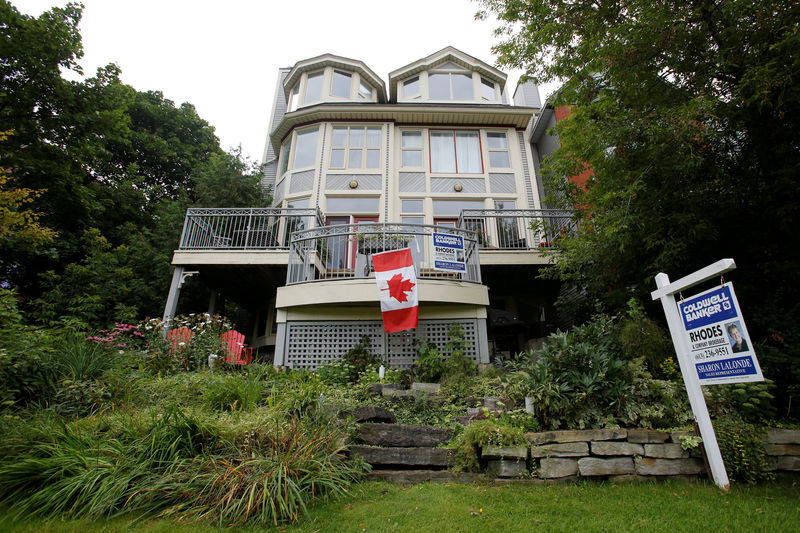By Andrea Hopkins and David Ljunggren
OTTAWA (Reuters) - Resales of Canadian homes rose in November for the fourth straight month, the Canadian Real Estate Association said on Thursday, but it lowered its forecast for 2018 sales and prices because it expects stricter mortgage rules to dampen demand.
Separate data showed new home prices edged up by 0.1 percent in October, while Canadian household debt as a share of income hit a record high in the third quarter. This reinforced concerns that Canadians have taken on too much debt to get into the booming housing market.
Taken together, the three reports paint a picture of highly indebted households and a still-robust housing market that is expected to cool in 2018 as more tightening of mortgage rules takes effect.
Household debt rose to a record 171.1 percent in the third quarter and is expected to increase further this quarter as homebuyers try to complete deals before January, when a new banking stress test will make it harder to take on big mortgages.
But the ratio could flatten out in 2018 if the rule changes restrain homebuying and the debt that comes with it, Benjamin Reitzes, Canadian rates and macro strategist at BMO Capital Markets, said in a research note.
Sales of existing homes rose 3.9 percent in November from October nationwide and jumped 16 percent in the Toronto area, Canada's largest market, the real estate association said. But it cautioned that the looming stress tests might have pulled activity forward.
Sales were up 2.6 percent from a year earlier, while home prices gained 9.3 percent on the year, continuing a steady deceleration as the cumulative effect of tighter mortgage rules and a foreign buyers tax in Toronto and Vancouver reduced demand.
The association forecast a 5.3 percent drop in sales activity in 2018. Three months ago, it had expected a 2.3 percent decline.
The national average price is expected to fall 1.4 percent to C$503,100 ($391,865) in 2018 after a 4.2 percent rise in 2017. In October, the group had forecast a milder 0.6 percent decline.

The separate Statistics Canada report on new home prices, which make up a far smaller segment of the housing market, showed modest increases of 0.1 percent for Toronto and 0.3 percent for Vancouver. They had been the nation's hottest markets.